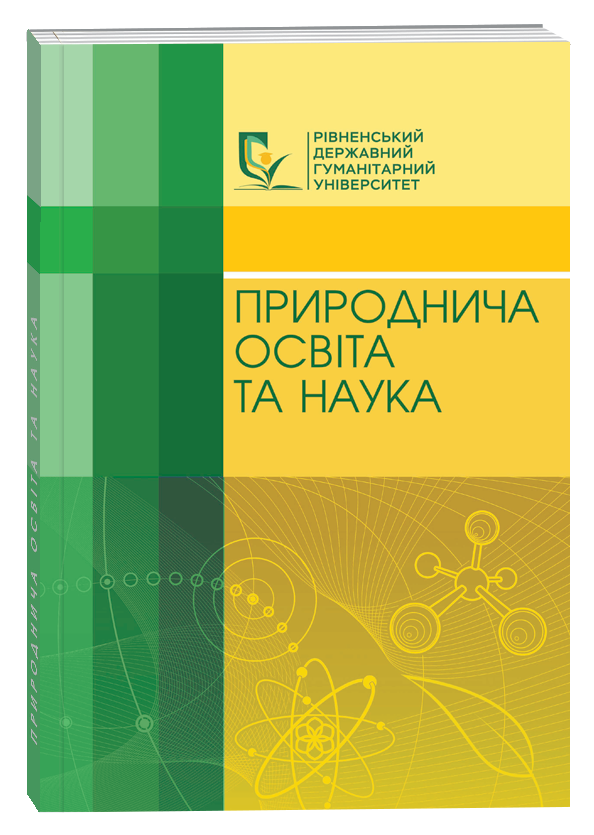PECULIARITIES OF MOTOR SKILLS OF YOUNGER SCHOOLCHILDREN WITH HEARING DEPRIVATION
Abstract
Systematic physical exercises have a positive impact on the physical fitness of schoolchildren. In particular, there is an improvement in physical development, the level of development of speed, strength, endurance, coordination of movements, flexibility and speed and power qualities, strengthening of the immune system and improvement of the psycho-emotional state of children. The purpose of the study is to study and analyze the state of motor skills of primary school children with hearing loss and compare it with their peers who do not have hearing impairment. Research methods. To realize the goal, we used the following research methods: theoretical analysis and generalization of data from scientific, methodological and special literature, comparison, systematization. Results. The peculiarities of motor skills of schoolchildren with hearing impairment are caused by a whole range of reasons, one of which is the dysfunction of individual body systems. That is why to ensure normal functioning of all body systems of pupils with hearing impairment it is necessary to activate their motor skills. The analysis of the level of physical development of schoolchildren with hearing loss shows that these children have disharmony in physical development, which is manifested in a low level of endurance, speed, speed and strength, and flexibility compared to their peers without hearing loss. A significant lag in static and dynamic balance was also found in these children. A low level of muscle strength is also characteristic as a consequence of vestibular dysfunction and physical inactivity in children with hearing loss. Conclusions. Thus, according to the results of the analysis, it can be stated that primary school children with hearing deprivation have a significant lag, compared to their peers without hearing impairment, in terms of the development of physical qualities such as strength, speed, agility, strength endurance, speed and power qualities. At the same time, there is a sharp lag in static and dynamic balance indicators and a low level of muscle strength, which may be due to a decrease in muscle tone due to impaired vestibular function and hypodynamia in children with hearing loss.
References
2. Байкіна Н.Г. Проблеми формування рухових функцій у дітей з порушеннями слуху. Фізичне виховання та здоров’я. 2018. Т. 15, № 2. С. 41–48.
3. Бондарь О., Джевага В., Джевага Є. Розвиток координаційних здібностей дітей молодшого шкільного віку з вадами слуху. Науковий вісник фізичного виховання. 2019. № 34 (1). С. 62–66.
4. Демчук С. Особливості розвитку фізичних якостей у школярів із депривацією слуху. Фізичне виховання, спорт і культура здоров’я у сучасному суспільстві. 2015. Вип. 3 (31). С. 134–140.
5. Формування моторики людини в процесі онтогенезу : монографія / В.О. Кашуба, О.М. Бондарь, Н.М. Гончарова, Л.М. Носова. Луцьк : Вежа-Друк, 2016. 232 с.
6. Комп’ютерні системи контролю моторики у фізичному вихованні школярів із депривацією слуху / Г.А. Лісенчук, І.В. Хмельницька, С.В. Крупеня, О.М. Литвиненко, Н.О. Борецька. Запорізький вісник. 2020. № 2. С. 105–110. DOI: 10.26661/2663-5925-2020-2-08.
7. Савлюк С. Особливості моторики дітей молодшого шкільного віку з депривацією слуху в процесі фізичного виховання = Features motor skills of children of primary school age deprivation hearing in the process physical education. Journal of Education, Health and Sport. 2016. Vol. 6 (9). S. 818–831. http://dx.doi.org/10.5281/zenodo.159358.
8. Савлюк С. Розвиток координаційних здібностей дітей молодшого шкільного віку з депривацією слуху в процесі фізичного виховання. Фізична активність, здоров’я і спорт. 2016. № 3 (25). С. 27–32.
9. Хода Л.Д. Корекція рухової сфери школярів із депривацією слуху засобами фізичного виховання. Педагогіка та психологія. 2020. Т. 18, № 3. С. 27–35.
10. Anthropological providing educational services to children with special educational needs / I. Grygus, O. Nagorna, A. Nogas, W. Zukow. Journal of Human Sport and Exercise. 2019. № 14 (4). S. 852–866. https://doi.org/10.14198/jhse.2019.14.Proc4.48.
11. Technology for correcting postural disorders in primary school-age children with hearing impairment during physical education / V. Kashuba, S. Savliuk, L. Chalii, I. Zakharina, A. Yavorskyy, A. Panchuk, I. Grygus, M. Ostrowska. Journal of Physical Education and Sport. 2020. Vol 20 (Supplement issue 2). Р. 939–945.
12. Implementation of the Algorithm for Corrective and Preventive Measures in the Process of Adaptive Physical Education of Pupils with Special Needs / S. Savliuk, V. Kashuba, V. Romanova, S. Afanasiev, N. Goncharova, I. Grygus,
R. Gotowski, I. Vypasniak, A. Panchuk. Teorìâ Ta Metodika Fìzičnogo Vihovannâ. 2020. № 20 (1). Р. 4–11. https://doi.org/10.17309/tmfv.2020.1.01.






